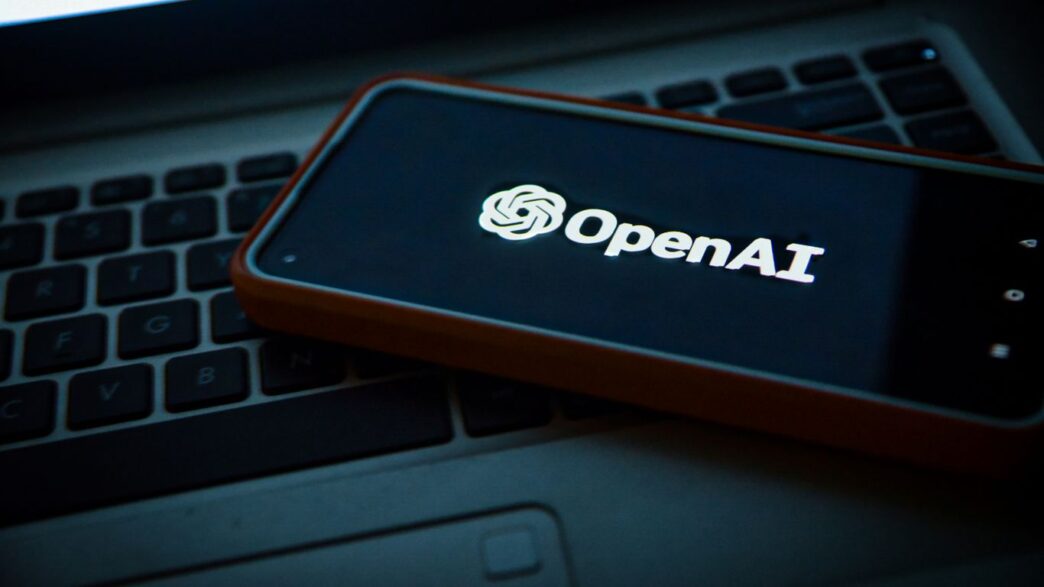So, OpenAI is jumping into the browser game with something called Atlas. It’s basically their own web browser, and it’s got ChatGPT built right in. This feels like a big move, kind of like they’re trying to go head-to-head with Google, which has pretty much owned the internet search and browser scene for ages. They’re saying this new open ai browser is all about making the internet experience different, especially with AI getting so big lately.
Key Takeaways
- OpenAI has released its own web browser, Atlas, which includes ChatGPT directly in the user experience.
- This new open ai browser aims to compete with established players like Google Chrome, which currently dominates the market.
- Atlas features like a persistent chat sidebar and ‘Agent Mode’ are designed to offer new ways to interact with web content and automate tasks.
- The launch signals OpenAI’s ambition to become a central platform for internet access, moving beyond just a chatbot service.
- While facing a huge user base with Chrome, Atlas’s AI integration could reshape how people access and use the internet in the future.
OpenAI’s Bold Entry Into The Browser Arena
Introducing Atlas: A New Challenger
So, OpenAI has gone and done it. They’ve officially thrown their hat into the ring with a brand-new web browser called Atlas. This isn’t just another browser; it’s built from the ground up with AI at its core, specifically integrating ChatGPT. Think of it as a direct shot fired at the current king of the hill. This move signals a significant shift in how we might interact with the internet, moving beyond just typing in a web address or a search query. It’s a bold statement, aiming to redefine what a browser can even be in this new AI-driven world. They’re not just adding AI features; they’re making AI the central piece of the experience. It’s available now for macOS users, with plans to bring it to Windows, Android, and iOS soon.
Challenging Google’s Long-Standing Dominance
Let’s be real, Google has had a pretty solid grip on the internet for a long time, especially with Chrome and its search engine. It’s hard to imagine many people switching their default browser, but OpenAI is betting big that the AI integration will be a game-changer. They’re hoping that by embedding ChatGPT directly into the browsing experience, they can pull users away from their established habits. It’s a massive undertaking, considering Chrome’s billions of users. But, as history shows, disruption can happen. Remember when Internet Explorer was the undisputed champion? Things change. OpenAI is banking on the idea that AI is the next big wave, and they want to be the ones riding it from the very start.
The Strategic Importance Of A Gateway To The Internet
Owning the gateway to the internet is a pretty big deal. Whoever controls how people access information online has a lot of influence, not to mention potential revenue. By creating Atlas, OpenAI is positioning itself to be that primary gateway. Instead of users going to a separate app to chat with ChatGPT, the chat is now part of the browsing itself. This could mean more traffic for OpenAI, and with traffic comes opportunities for monetization, perhaps through advertising or other services. It’s a smart play to move beyond just being a chatbot provider and become a more central platform for our online lives. This is a clear attempt to own the user’s entry point to the web, making ChatGPT Atlas the default way people experience the internet.
Redefining The Browsing Experience With AI
OpenAI isn’t just slapping ChatGPT onto a browser; they’re fundamentally rethinking how we interact with the internet. Forget just typing in a search query and hoping for the best. Atlas aims to make your web journeys more interactive and, frankly, more useful.
ChatGPT Integrated For Seamless Interaction
Imagine browsing a product page and being able to ask ChatGPT, right there in a sidebar, about the materials, shipping times, or even if it would be a good gift for your cousin who likes "that one thing." That’s the core idea here. You don’t have to leave the page or open a new tab. The chat follows you, ready to analyze or summarize whatever you’re looking at. It’s like having a knowledgeable assistant constantly by your side as you explore the web. This persistent chat sidebar is a big deal for quickly getting information without breaking your flow. You can even manage your browsing data, deciding what ChatGPT sees and remembers, or use an incognito mode for private sessions, giving you control over your browsing data.
Agent Mode: Automating Complex Tasks
This is where things get really interesting. "Agent Mode" takes the AI assistant concept a step further. Instead of just answering questions, it can actually do things for you. Think about planning a trip: you could tell Atlas to research flights, find hotels within a certain budget, and even book them. Or maybe you found a recipe online and want to order the ingredients – Agent Mode could handle that. It’s designed to tackle multi-step tasks that would normally take a lot of clicking around and copying information between different sites. It’s a move towards a more automated web experience.
Beyond Search: A New Paradigm For Web Access
For years, the browser has been about URLs and search bars. Atlas is proposing a shift. What if your primary way of accessing the internet wasn’t a search box, but a conversation? This browser is built around that idea. It’s not just about finding information; it’s about accomplishing tasks and getting things done more efficiently. This could change how we think about everything from online shopping to research, moving beyond simple information retrieval to a more active, agent-driven internet.
The Competitive Landscape And Market Dynamics

So, OpenAI’s new browser, Atlas, is here, and it’s definitely shaking things up. It’s like they’re walking right up to Google’s front door and saying, "Hey, we’re here now." Google Chrome has been the king of browsers for ages, with a massive user base that’s hard to even imagine. We’re talking billions of people who just open Chrome without a second thought. It’s become the default way most folks get online.
Facing Off Against Google Chrome’s User Base
It’s a tough spot for OpenAI. Chrome isn’t just popular; it’s practically ingrained in how people use the internet. Think about it: how many times have you consciously chosen a browser? For most, it’s just there. Google has done a really good job of making it the go-to, and that kind of user habit is incredibly sticky. OpenAI’s Atlas has a monumental task ahead of it to even make a dent in Chrome’s market share. It’s not just about having cool AI features; it’s about convincing people to switch from something they’ve used for years, maybe even since they first got online. It’s a bit like trying to convince someone to switch from their favorite coffee shop to a new one across town – they might try it, but will they stick with it?
Lessons From Chrome’s Past Success
When Google launched Chrome back in 2008, Microsoft’s Internet Explorer was the undisputed champion. Nobody thought a new browser could really compete. But Chrome did something smart: it was faster and offered a cleaner experience. People noticed. They started switching. OpenAI is probably looking at that playbook. They need to offer something genuinely better, not just different. Maybe it’s the AI integration, or perhaps the agent mode that can do tasks for you. They’ve got to give people a really good reason to move their digital lives over. It’s a long shot, but history shows it’s not impossible. The browser market is experiencing renewed competition, with AI-powered browsers emerging as challengers to dominant players like Google Chrome and Apple’s Safari. This shift signals a dynamic evolution in how users interact with the internet [cb97].
The AI Arms Race In Browser Development
And it’s not just OpenAI. Google isn’t sitting still. They’re already adding AI features to Chrome, like their Gemini chatbot. It feels like a bit of an arms race now. Everyone’s trying to pack more AI into their products to stay relevant. You’ve got companies like Microsoft, Apple, and others all looking at how AI can change the game. It’s a fast-moving space, and what seems cutting-edge today might be old news tomorrow. For Atlas to succeed, it needs to keep innovating and stay ahead of the curve. It’s going to be fascinating to watch how this all plays out.
OpenAI’s Strategic Vision And Monetization
Leveraging ChatGPT’s User Growth
OpenAI’s big move with Atlas isn’t just about building a new browser; it’s about turning their massive ChatGPT user base into a direct pipeline for internet access. They’ve already got over 800 million people using ChatGPT, which is pretty wild. Now, by integrating this directly into a browser, they’re hoping to make it the default way people get online. It’s a smart play to shift from being a destination for AI chat to being the actual gateway to the entire web. They’re even offering increased ChatGPT usage limits for those who make Atlas their main browser, which is a nice little nudge to get people to switch. This whole strategy is a clear step towards owning the user’s entry point to the internet, a move that could really shake things up. OpenAI’s rapid ascent is attributed to its innovative technology and effective monetization strategies, allowing for unprecedented growth in the AI era. This strategy seems to be working well so far.
Potential Revenue Streams From Increased Traffic
So, how does OpenAI plan to make money from all this? Well, owning the browser means owning a huge chunk of internet traffic. More traffic means more opportunities for digital advertising, which is how most browsers make their cash. While they haven’t laid out all the specifics yet, it’s pretty clear that directing users to websites through Atlas opens up a whole new world of potential revenue. Think about it: if people are spending more time in an OpenAI-controlled environment, that’s valuable real estate for ads and other services. It’s a shift from just providing an AI tool to becoming a central hub for online activity, and that hub can be monetized in a lot of different ways.
Shifting From Chatbot To All-Encompassing Platform
This browser launch is a really big deal because it shows OpenAI is serious about becoming more than just a chatbot company. They’re aiming to build an all-encompassing platform for how we interact with the internet. Features like the persistent chat sidebar and the ‘Agent Mode’ that can handle complex tasks on its own are designed to make browsing more efficient and integrated. It’s not just about asking questions anymore; it’s about getting things done. This move positions them directly against giants like Google, not just in search, but in the entire online experience. They’re essentially trying to redefine what a browser can be, making it an active participant in your online life rather than just a passive window.
Technical Capabilities And User Features

So, what’s actually under the hood with this new Atlas browser from OpenAI? It’s not just a fresh coat of paint on the same old browsing experience. They’ve packed in some pretty interesting stuff designed to make your time online feel different, and hopefully, better.
Persistent Chat Sidebar For Web Analysis
One of the standout features is this chat sidebar that just stays there, right on the side of your screen. You know how usually you have to open a new tab or window to ask ChatGPT something? Well, not anymore. You can be reading an article, looking at a product, or whatever, and just ask the sidebar a question about what you’re seeing. It can summarize the page for you, pull out key information, or even help you compare products without you having to leave the page you’re on. It’s like having a helpful assistant right there with you as you browse. This is a big change from how we’ve used browsers before, making information gathering much more direct. OpenAI has launched Atlas, a Chrome browser extension that integrates ChatGPT. It features a sidebar for asking questions about visited web pages and an AI agent capable of interacting with websites, such as clicking links. This tool aims to enhance web browsing by providing AI-powered assistance directly within the browser. It’s a new way to interact.
Browser Memory For Enhanced Chat Responses
This is where things get really interesting. Atlas has something called ‘browser memory’. Basically, it remembers what you’ve been looking at. So, if you’re researching vacation spots, it’ll keep track of the hotels and flights you’ve checked out. Then, when you ask it to help you plan your trip, it can use that memory to give you much smarter suggestions. It can even help create a to-do list based on your recent activity or pick up where you left off researching gifts. It’s a step beyond just remembering your browsing history; it’s about the AI understanding the context of your current tasks. This means fewer repetitive questions and more personalized help.
Cross-Platform Availability And Rollout Plans
Right now, the big question is, who gets to use this, and when? OpenAI is rolling out Atlas, and it’s available on multiple platforms. They’re aiming to make it easy for people to switch over. For those who decide to make Atlas their default browser, there are some perks, like temporary boosts to ChatGPT usage limits. This is a smart move to get people to try it out and get used to the new way of browsing. The company is also looking at how to get developers involved, which could lead to even more features down the line. It’s still early days, but the plan seems to be a gradual rollout to get as many people on board as possible.
The Broader Implications For The Tech Industry
A Direct Challenge To Big Tech’s Core Business
OpenAI’s move with Atlas isn’t just about a new browser; it’s a direct shot at the heart of what makes companies like Google so powerful. For years, Google has essentially owned the internet’s front door with Chrome and its search engine. By embedding AI directly into the browsing experience, OpenAI is trying to change that fundamental relationship. Think about it: if you can get answers, summaries, and even have tasks done for you right within the browser, why would you need to go to a separate search page? This could really shake things up for companies whose business models rely heavily on directing traffic through their own search portals. It’s a bold strategy, and one that could force a lot of rethinking in Silicon Valley. Google itself is already trying to adapt, adding AI features to its own browser, showing just how serious this competition is becoming.
The Evolving Role Of AI In Internet Navigation
We’re seeing a big shift in how we use the internet. It’s moving from a place where we actively search for information to one where AI proactively helps us. This new browser, with its ‘Agent Mode,’ is a prime example. Instead of just typing in a question, you can ask it to do things like plan a trip, which involves multiple steps and interactions. This means AI is becoming less of a tool we use and more of a partner that handles complex digital tasks for us. It’s like having a personal assistant for the web. This evolution could change everything from how we shop online to how we do research. The way we interact with websites might become much more automated and less about clicking through endless links. It’s a future where AI is deeply woven into our daily online activities.
Potential Reshaping Of The Competitive Landscape
This whole situation could really change the game for tech companies. For a long time, Google Chrome has been the dominant player, and it’s hard to unseat a leader with such a massive user base. But AI changes the rules. Companies that can offer a genuinely smarter, more helpful browsing experience might just find a way to chip away at that dominance. We’ve seen how quickly things can change in tech before, and AI is a powerful catalyst. It’s not just about having the most users anymore; it’s about having the smartest tools. This could open the door for new players and force established giants to innovate faster than ever. The race is on, and it’s not just about who has the best search results, but who can best integrate AI into our everyday digital lives. The AI overview feature in Google Search is just one sign of this ongoing battle.
The Road Ahead
So, OpenAI’s new browser, Atlas, is here, and it’s definitely shaking things up. It’s a big move to try and grab a piece of the internet search pie that Google has held onto for so long. While Atlas has some neat AI tricks up its sleeve, like that ‘agent mode’ that can do tasks for you, it’s got a massive uphill battle. Chrome is everywhere, and people are used to it. It’s going to take a lot more than just cool features to get folks to switch their daily browsing habits. We’ll have to wait and see if this is the start of a real browser war or just another interesting tech experiment.












